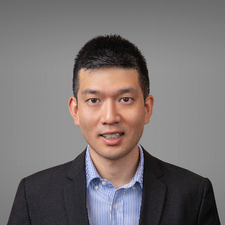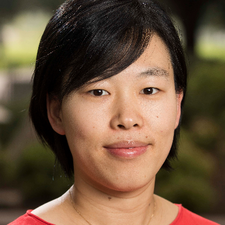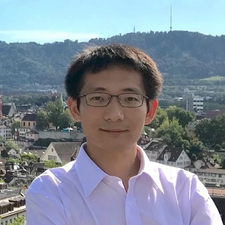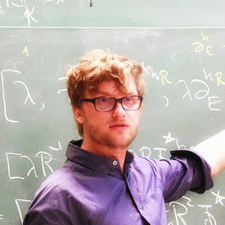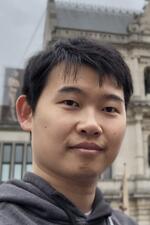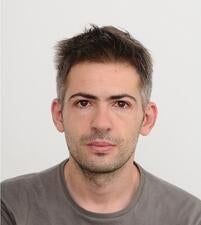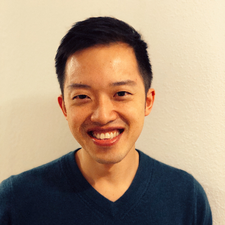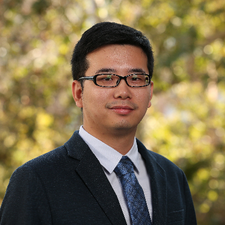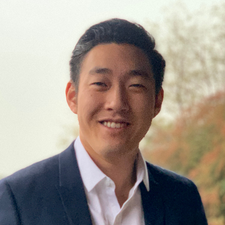Ten UC Riverside faculty members have been awarded prestigious National Science Foundation CAREER Awards to support research in areas ranging from early detection of diseases to human-robot interactions.
The awards support early career faculty who demonstrate the potential to serve as academic role models and advance their organization’s mission. Research conducted with these funds is intended to form the foundation for a lifetime of leadership in integrating education and research.
UCR’s 2024 CAREER Award recipients and the projects funded are listed alphabetically below.
Juhong Chen, an assistant professor of bioengineering, is focused on using genetic engineering techniques for the early identification of diseases and problematic health conditions. Chen’s CAREER project will exploit CRISPR technology to detect biomarkers for life-threatening cancers, pathogens, and other maladies. This will be done by identifying genetic variations in the human genome known as single nucleotide polymorphisms, or SNPs. His goal is to develop novel biosensing approaches for the ultra-accurate detection of disease-related SNPs for the early diagnosis and treatment of diseases.
Weitao Chen, an assistant professor of mathematics, is an applied mathematician who specializes in computational biology and scientific computing. Her research focuses on developing mathematical models to investigate mechanisms underlying cell morphogenesis and tissue development, which opens a window into human development and possible treatments for birth defects and cancers. Her project follows along these lines and will help develop better understanding of the biological process by which cells, tissues, and organisms develop their shape and size. Specifically, she will model the shape formation of epidermal cells in plant leaves by considering both biochemical signals and biophysical properties, and this study will have a range of applications from tissue engineering to biomanufacturing and biotechnology. For this project she will recruit students from nearby high schools and universities for a satellite undergraduate research program.
Ran Cheng, an assistant professor of electrical and computer engineering, focuses on fundamental physical phenomena in a wide variety of magnetic, topological, and quantum materials, which could enable novel device concepts transcending the established paradigm of semiconductor-based electronics. His CAREER project will investigate emerging classes of topological materials, intending to lay a solid physical foundation for non-dissipative devices featuring a theoretical 100% power conversion without undesirable heat waste. In addition, the project explores a transformative alternation of the spin-based electronics, which could revolutionize the basic architecture of modern computers.
Brian Collier, an assistant professor of mathematics. His project is focused on the mathematical study of curved surfaces by associating geometric, analytic and algebraic objects to them. The study of surfaces has surprising applications in many fields of mathematics and theoretical physics. The central object in Collier's work are surface group representations. These objects connect surfaces to generalizations of classic concepts like Euclidean and hyperbolic geometry, which are the mathematical underpinning of tiling art, for example in the work of Escher's. In addition to cutting edge mathematical research, the project will promote the progress of science and mathematics through different workshops aimed at graduate students as well as community outreach events.
Yan Gu, an assistant professor of computer science and engineering, focuses on designing parallel algorithms, data structures, and systems. His CAREER project will develop algorithm structures that most efficiently take advantage of parallel processors. This will include learning how to measure the space and memory used by parallel algorithms, as well as designing novel algorithms that can use computing space most efficiently. The project will further study algorithm designs for the new processing-in-memory (PIM) systems, which reduce the need for expensive data transfers between CPU and memory. The challenge is that the PIM systems are a combination of shared memory and distributed memory, so efficient algorithms on PIM must utilize the advantages of each.
Ioannis Karamouzas, an associate professor of computer science and engineering, focuses on shaping the next generation of mobile service robots that can reason about how their actions influence the others present in their environment and act accordingly, much like humans do. His CAREER project will leverage publicly available crowd data and human-robot interaction experiments to better understand how humans behave in the presence of the robots and subsequently develop new human-aware models of robot motion. The goal is to enable “thinking” mobile robots that can be seamlessly integrated into our homes and workspaces.
Kevin Kou, an assistant professor in chemistry, is interested in discovering new ways for chemicals to react that streamline the preparation of molecules important to the pharmaceutical and agricultural industries. With this award, Kou’s team will explore the relative merits of rhodium and cobalt as catalysts for creating products that serve as the core of a number of bioactive compounds. He and his team will also build excitement around science, technology, engineering, and math education amongst younger students in the Inland Empire by organizing chemistry demonstrations in elementary schools and offering research opportunities for high school students.
Elaheh Sadredini, an assistant professor of computer science and engineering, focuses her research on novel computing paradigms and memory-centric computing, which processes data in fast, easily accessible memory that increases processing speeds. Her CAREER project’s goal is to shift the processing of data from sensors, tracking devices, and other devices in the “Internet of Things” to memory-centric systems and integrate them into today’s modern systems. The project will design a computing stack to adapt near-data processing to modern architectures. It will also address the security and privacy challenges posed by memory-centric computing.
Jun Sheng, an assistant professor of mechanical engineering, focuses on surgical robotics, medical devices, and smart materials. His CAREER project will create a class of surgical robots, from submillimeter to tens of millimeters in diameter, with capabilities to safely navigate within the human body and dexterously operate on different kinds of soft tissue. The goal is to create “soft” robots for minimally invasive surgery, with better outcomes and faster recoveries.
Timothy Su, an assistant professor of chemistry, explores the intersection between silicon chemistry, atomically precise materials, and molecular electronics . His project is developing silicon-based electronics at the smallest scales and controlling the molecular structure of these electronics so that they outperform current electronic technologies. As part of this project, Su will work on attracting and retaining students who are underrepresented in STEM subjects. He will encourage them to create social media videos that help demystify chemical concepts and STEM career options.
